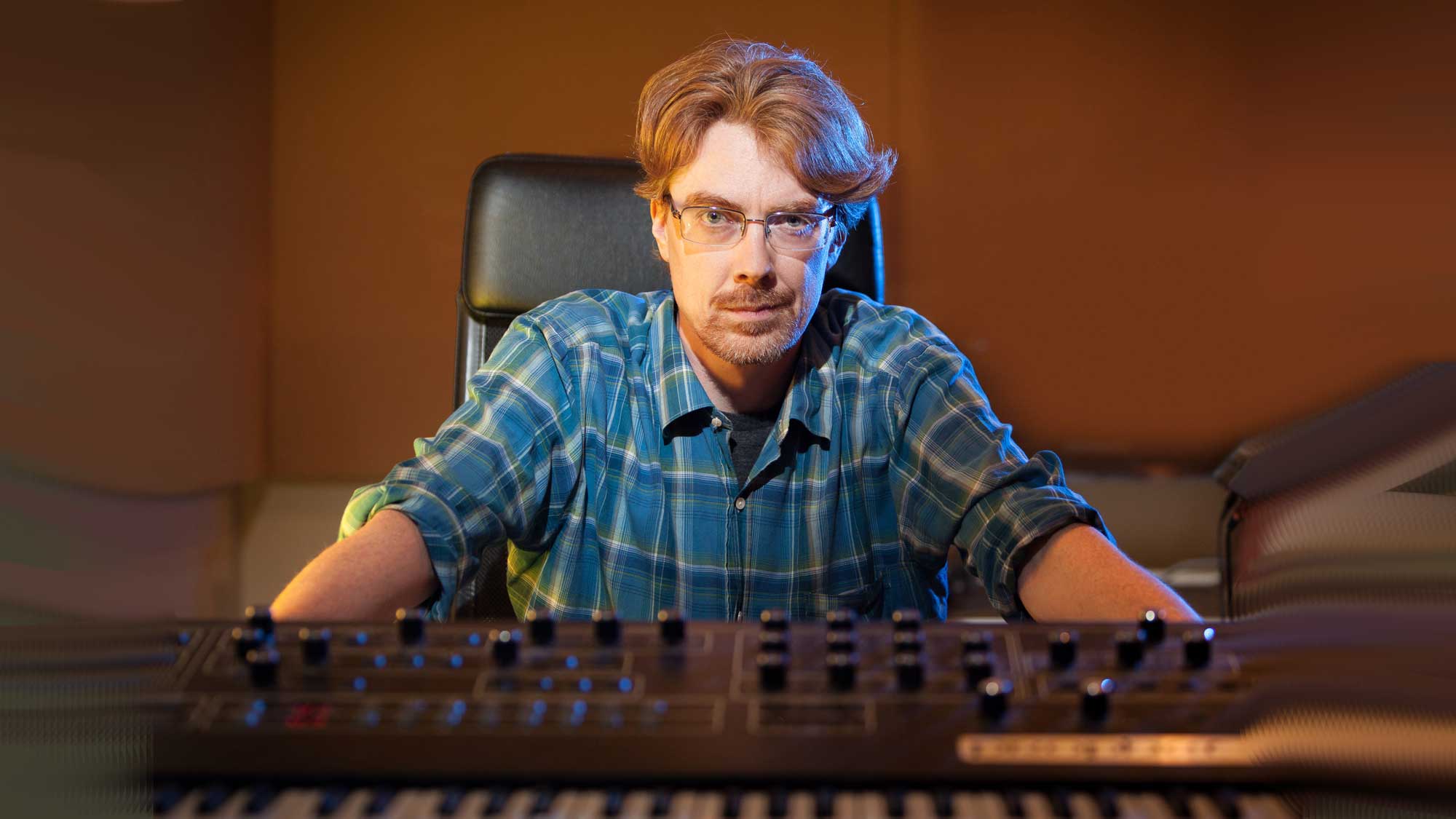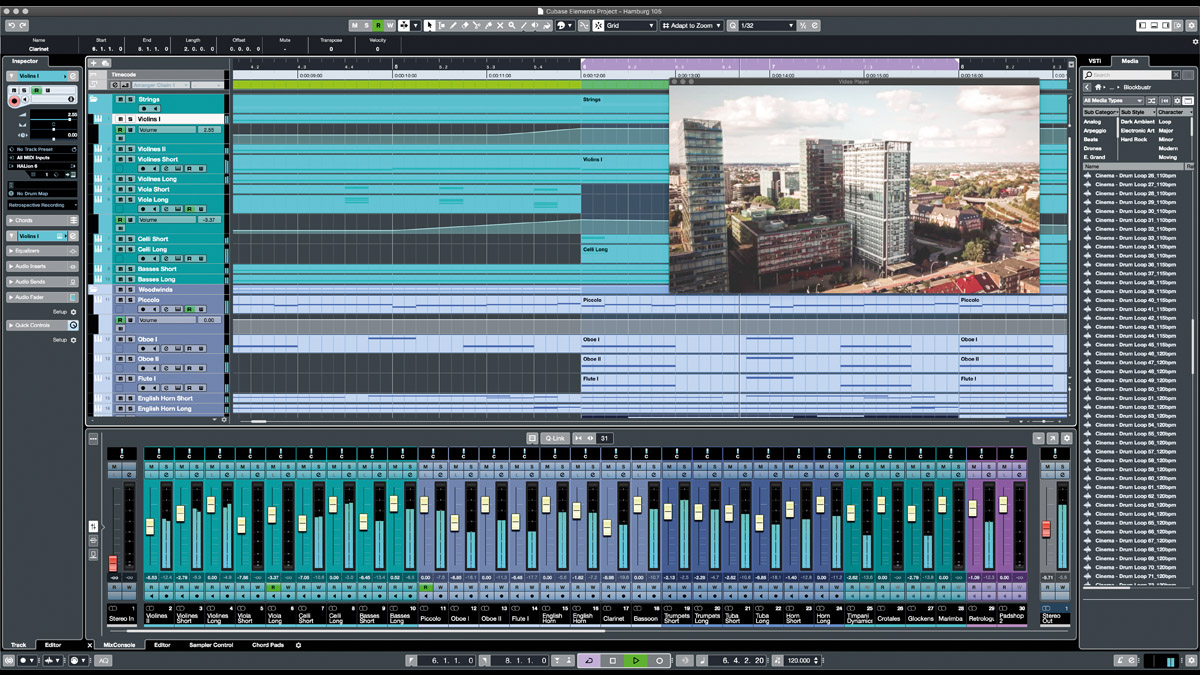So you want to be a... videogames composer: Assassin's Creed, Borderlands and Darksiders man Jesper Kyd
Tips on breaking into music professionally, from people at the top of their field

Want all the hottest music and gear news, reviews, deals, features and more, direct to your inbox? Sign up here.
You are now subscribed
Your newsletter sign-up was successful
BAFTA award-winning Danish composer Jesper Kyd is one of the most celebrated composers in video games, renowned for his experimental approach to crafting unique soundtracks and creating iconic music for blockbuster video game franchises including Assassin's Creed, Borderlands, Darksiders, Hitman and State of Decay.
Constantly pushing musical boundaries and transcending genre expectations, Kyd’s latest releases include Bordelands 3 and the internationally acclaimed dark fantasy film Tumbad on Amazon Prime. Last month he was confirmed as composer for the next Assassin's Creed outing, Valhalla
I taught myself everything about making music for games.
What was your musical background prior to getting involved with video game music?
I've always been making music be it jamming on a piano as a kid or later in my early teens making music with computers. The big turning point for me was when I meet fellow computer games fanatics in the European DemoScene, who, like me, were fascinated by how games were made. I taught myself everything about making music for games.
How did you get your first games work?
My friends were programmers and graphic artists. When I was 19 we started our game studio Zyrinx and our first game got sold to Sega.
How does composing music for games differ to composing for film, or television?
Want all the hottest music and gear news, reviews, deals, features and more, direct to your inbox? Sign up here.
When scoring a game, you often write music that stays in a certain mood for much longer. Say there's a tension moment, a puzzle to solve or a fight, the music has to be able to play until the game player decides to change the moment. In film, you are locked to a scene that will sound and play the exact same way every time you watch it, whereas in games the player decides when to move on.
A project usually has anywhere between 3-8 milestones depending on the amount of music written.
Presumably, the music needs to be dynamic in many games. How does that work?
A good interactive music system can make the experience sound different every time you play through a specific scene, which is what we worked towards on the Borderlands 3 score, for example.
The music engine runs the same tempo as each cue, and writing the ending or transitions into other tracks can make the experience seamless and more immersive.
You want a music system that sounds like it's supporting the actions of the player, and also for when the player explores or decides not to move the story forward yet, you have to account for every possible scenario.
What is the common process you go through when making a game's soundtrack?
In the beginning I find it helpful to send over tracks while they are still being finished to make sure the direction is helping the game in the best possible way.
As you get deeper into the experience, a clarity appears as to the direction of the music and you start to get a good idea about what the team responds well to and what are the best music making decisions.
How are you briefed, what milestones do you go through, and what deliverables are common?
It's different for each project. It's common to send over music once a track is ready, I don't send over music in big milestone chunks. A project usually has anywhere between 3-8 milestones depending on the amount of music written.
Regarding the brief, I am often asked to come up with my own ideas for the score. There are certain parameters of course since the team always has expectations from the music. You wouldn’t write some metal music when the team expects an orchestral score :)
Do you need to be able to read music in order to do the job?
No, but when recording with orchestras it certainly helps. I believe it's really useful to be able to mix, produce and master your own music.

Gear-wise, what are the essential tools for game music composers?
Well everyone is different but for me it's Cubase, a good controller keyboard, a good DAW, some outboard analog synths, lots of plugins and acoustic instruments.
What are some of the common mistakes you see people make when trying to gain work in the industry?
People who claim not to play games writing game scores. It's of course possible to do but how are you going to add anything extra to the music brief if you know nothing about games? Imagine a director asking a composer only to score what he says. The composer has to challenge the brief for the magic to happen.
What can budding composers and producers do to increase their chances of gaining employment in games music?
Keep working in your own music style. People don't want to hear how this would sound great with a live orchestra or solo performers, etc. Make it sound great no matter what the challenge.
Finally, which of your projects are you most proud of and why?
I really enjoyed writing the scores for the first 4 Assassin's Creed games. I love world-building through music and being there at the beginning, helping to define the sound of the franchise (including writing Ezio's Family, now the main theme of the franchise).
Also, working on all the Borderlands games, the State of Decay series, Hitman series and Darksiders 2 were all creatively rewarding in different ways.
Another recent project I am extremely proud of is the dark fantasy film, Tumbbad, available on Amazon Prime. It’s a visual feast, beautifully shot and tells a unique (Indian mythological) story. Very proud to be involved with this groundbreaking film.
The Laced Records label has worked with a range of partners — including Bandai Namco, Bethesda, Capcom, SEGA, and Square-Enix — to release soundtracks for handcrafted indies, classic gaming series and AAA blockbusters. The Laced Records label is part of Keywords Studios, a technical and creative services provider to the videogames industry, with 50+ operational studios across 21 countries and four continents.


MusicRadar is the number one website for music-makers of all kinds, be they guitarists, drummers, keyboard players, DJs or producers...
- GEAR: We help musicians find the best gear with top-ranking gear round-ups and high-quality, authoritative reviews by a wide team of highly experienced experts.
- TIPS: We also provide tuition, from bite-sized tips to advanced work-outs and guidance from recognised musicians and stars.
- STARS: We talk to musicians and stars about their creative processes, and the nuts and bolts of their gear and technique. We give fans an insight into the craft of music-making that no other music website can.
